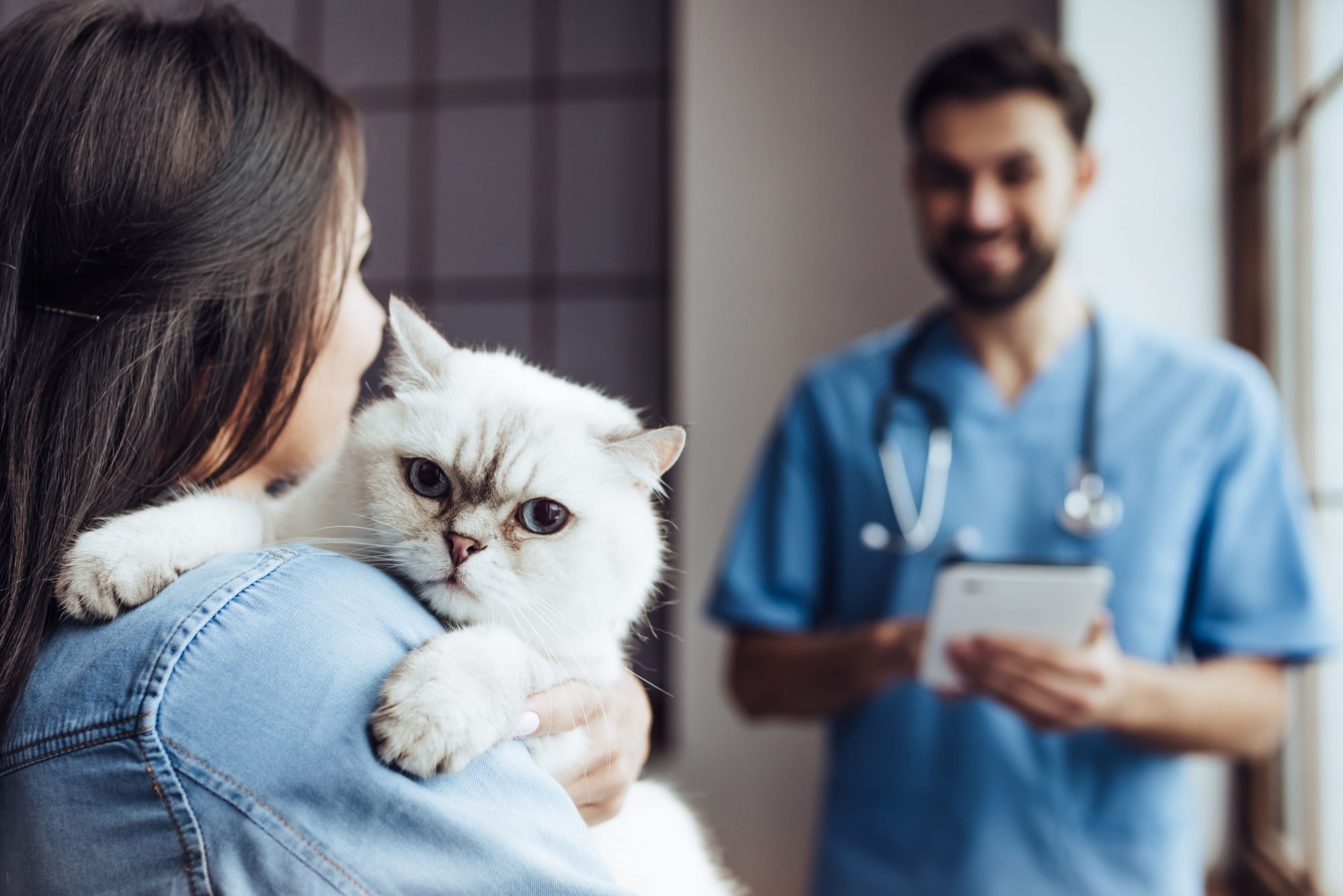Cat Wellness Exams for the Win!

We get it. Cats typically detest their travel crate and show white-hot rage/abject fear when placed in a car for travel. This means it’s pretty darn difficult to bring them into the vet. To complicate things, they’re famous for concealing any signs of illness or injury. So hidden are their potential symptoms, that long periods of time can go by without medical diagnosis or treatment.
For these reasons, it’s not always easy to maintain cat wellness exams, but it doesn’t have to be so challenging, either. The takeaway is that routine care can achieve a better outcome for a cat, and may even improve quality of life and longevity.
Time After Time
Kittens are incredibly open to new, positive experiences. We like to see them several times in their first year to complete their vaccinations, spay/neuter them (if applicable), and establish the foundation for lifelong health. What this also does, conveniently, is create a pattern early on. When they accept their travel crate, car transport, and a visit to the vet every so often, a cat can achieve a stress-free approach to health care.
The Benefits of Annual Exams
Once an approach to a kitten’s preventive health is established (including vaccinations, parasite prevention, microchip, nutrition, and dental care), we aim to see them once a year. Many owners wonder why they should keep their cat wellness exams if their cat is in great health. The beauty of these annual appointments is in their healthy baseline. If we have something to compare future values to, we can quickly hone in on any differences. This can lead to early detection of various health conditions.
Earlier Is Better
If we catch certain health conditions before they get out of hand, we have a better chance of effectively treating them. If a disease progresses without medical support, it can be very expensive to treat and may even have a lower rate of efficacy.
Cat wellness exams pay off in the long run by preventing the unchecked development of disease.
Common Problems
Once a cat reaches 7 years of age, we recommend seeing them twice per year. Again, this allows us to catch any age-related diseases as early as possible. The most common conditions of senior cats include:
- Diabetes
- Hyperthyroidism
- Kidney disease
- Arthritis
- Heart disease
- Cancer
The majority of pets over age 3 have periodontal disease. Characterized by inflamed, bleeding gums, periodontal disease can cause a great deal of pain, tooth loss, and even systemic illness of the heart, kidneys, or liver. The great news is that periodontal disease is 100% preventable.
Without yearly professional cleanings and X-rays, we can save a cat a lot of pain and suffering in the long run. This also decreases the possible risk of needing care for periodontal disease-related emergencies.
Cat Wellness Exams
We provide pet wellness plans to help owners budget for their pet’s health care. With low monthly fees, cat owners can anticipate which services their cat needs based on their annual plan. We are excited to offer plans to help pay for cat wellness exams, and can answer any questions you have at (916) 939-1705.
Our veterinarians and staff members are always happy to help cat owners meet the needs of their cats. One-to-two exams a year can help your cat thrive, which is something we love to see and support!

